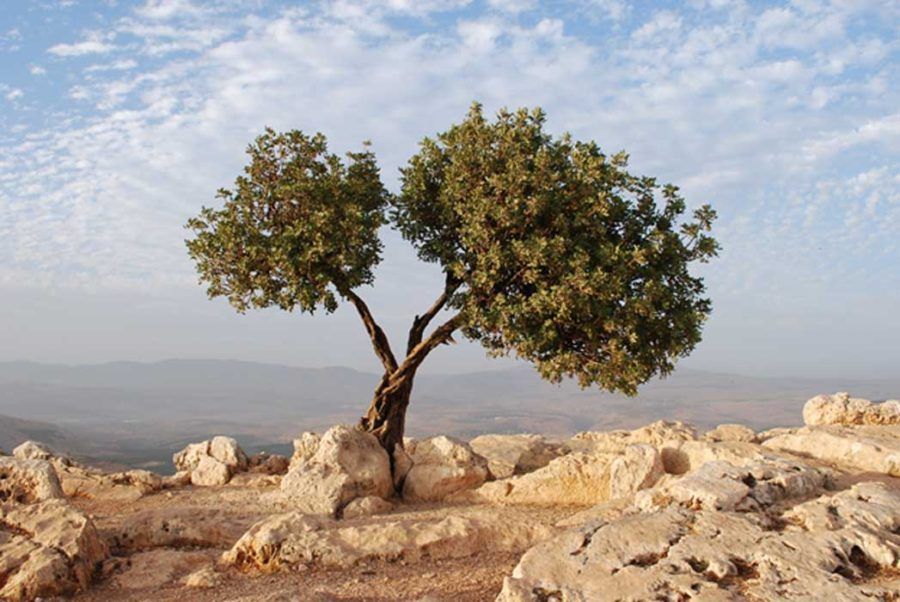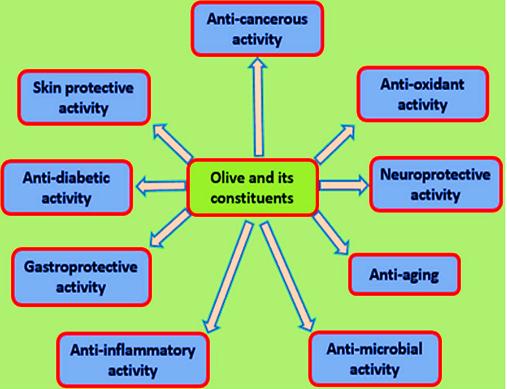
Science in the Glorious Quran: The blessed tree
“اللَّهُ نُورُ السَّمَاوَاتِ وَالْأَرْضِ ۚ مَثَلُ نُورِهِ كَمِشْكَاةٍ فِيهَا مِصْبَاحٌ ۖ الْمِصْبَاحُ فِي زُجَاجَةٍ ۖ الزُّجَاجَةُ كَأَنَّهَا كَوْكَبٌ دُرِّيٌّ يُوقَدُ مِن شَجَرَةٍ مُّبَارَكَةٍ زَيْتُونَةٍ لَّا شَرْقِيَّةٍ وَلَا غَرْبِيَّةٍ يَكَادُ زَيْتُهَا يُضِيءُ وَلَوْ لَمْ تَمْسَسْهُ نَارٌ ۚ نُّورٌ عَلَىٰ نُورٍ ۗ يَهْدِي اللَّهُ لِنُورِهِ مَن يَشَاءُ ۚ وَيَضْرِبُ اللَّهُ الْأَمْثَالَ لِلنَّاسِ ۗ وَاللَّهُ بِكُلِّ شَيْءٍ عَلِيمٌ” (النور:35).
“God is the Light of the heavens and the earth. The parable of His Light is as (if there were) a niche and within it a lamp, the lamp is in glass, the glass as it were a glittering star kindled from a blessed tree, an olive, neither oriented to the east nor the west, whose oil would almost glow forth (of itself), though no fire touched it. Light upon Light. God guides to His light whomever He wills. God, thus cites the parables for the people. God is aware of everything” (Qur’an, 24:35).
The olive tree is an evergreen perennial plant which might live for more than 1000 years. The tree was known to most ancient civilizations as one of the most important oil-producing plants. The olive tree grows throughout the Mediterranean region and in some other parts of the world with a similar climate.
The Qur’an mentions olive seven times. In the above verse, it considers it a blessed tree. The verse also addresses the effect of its orientation on the quality of the oil and how the oil almost glows without a fire. These three issues will be discussed in this section.
The blessed tree
The above verse of the Qur’an describes the olive tree as a blessed tree. This is likely because olive fruits are a source one of the most important edible oils. The oil was also used in the past as a source of a clean illumination and an important medicine. The Prophet Muhammad said:
“Use olive oil in eating and for rubbing (on the body), for it is from a blessed tree.”(Narrated by Al-Tirmizy)
The olive oil is rich in the monounsaturated oleic acid. This fatty acid has many medical beneficial effects. The olive oil protects the liver from damages caused by oxidative stress. It also prevents the fatty liver diseases from progressing to fibrosis and cirrhosis.
The olive oil is full of polyphenols. These compounds have antioxidant, analgesic, anti-inflammatory, anti-diabetic, anti-ageing, antibacterial and anti-depression effects. Polyphenols protect nerve and skin cells from oxidative damages and protect the stomach from peptic ulcers. They also prevent osteoporosis in women after menopause.
Some contents of the olive oil and leaves are active against cancers of the skin, breast, prostate, brain, and bowel. They have both direct and indirect activities against these types of cancer.
The monounsaturated fatty acids of the oil may decrease the risk of getting cancer. They prevent cancer-causing genes from functioning in cells. The antioxidant activity of olive oil polyphenols, flavonoids and squalene reduce the harmful effects of free radicals. So, they protect the cells from different types of cancer. Besides, some polyphenols like oleocanthal can directly and selectively kill cancer cells of the liver and colon.
On the other hand, the extracts of olive leaves and its oil may moderate the negative effects of chemotherapeutic drugs used for the treatment of cancer.
Some health benefits of the olive oil and its leaf extracts.


